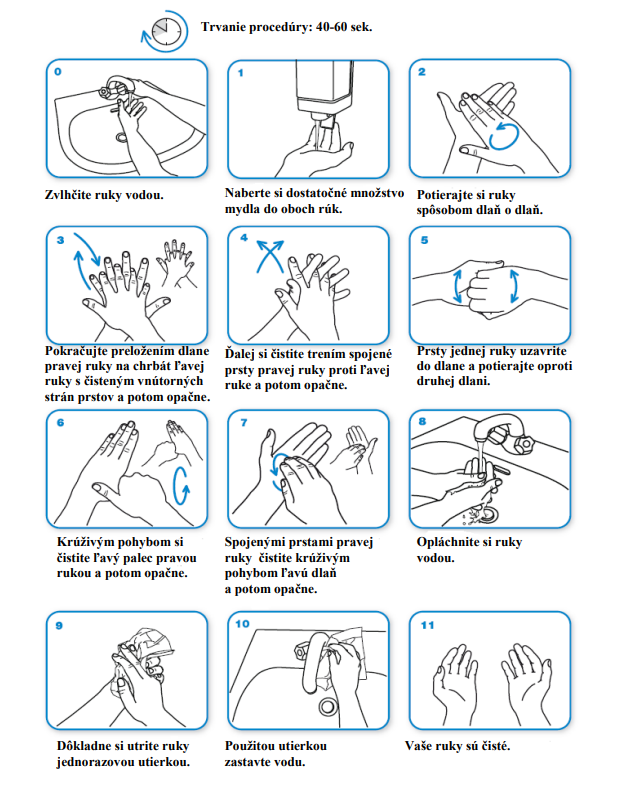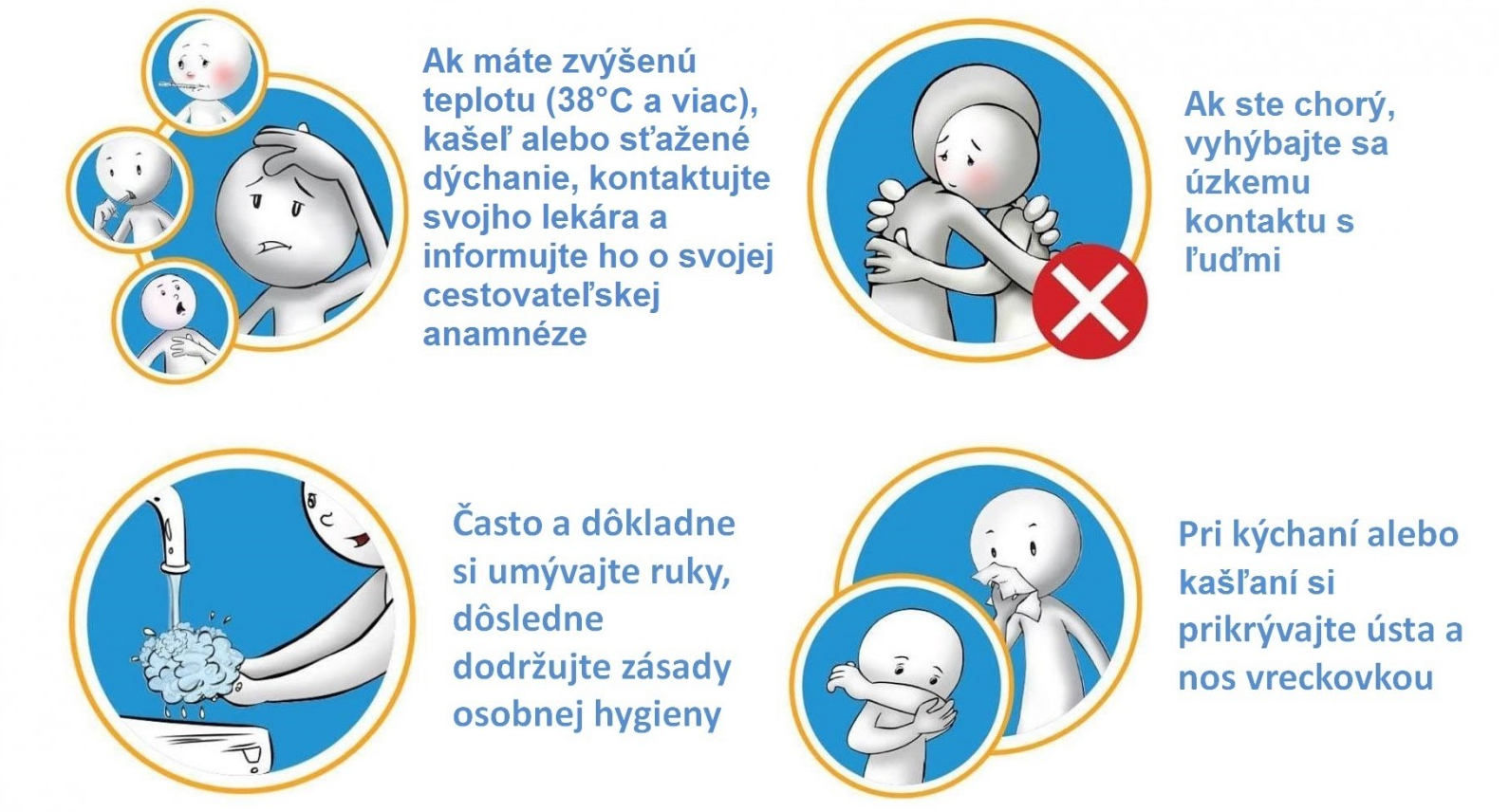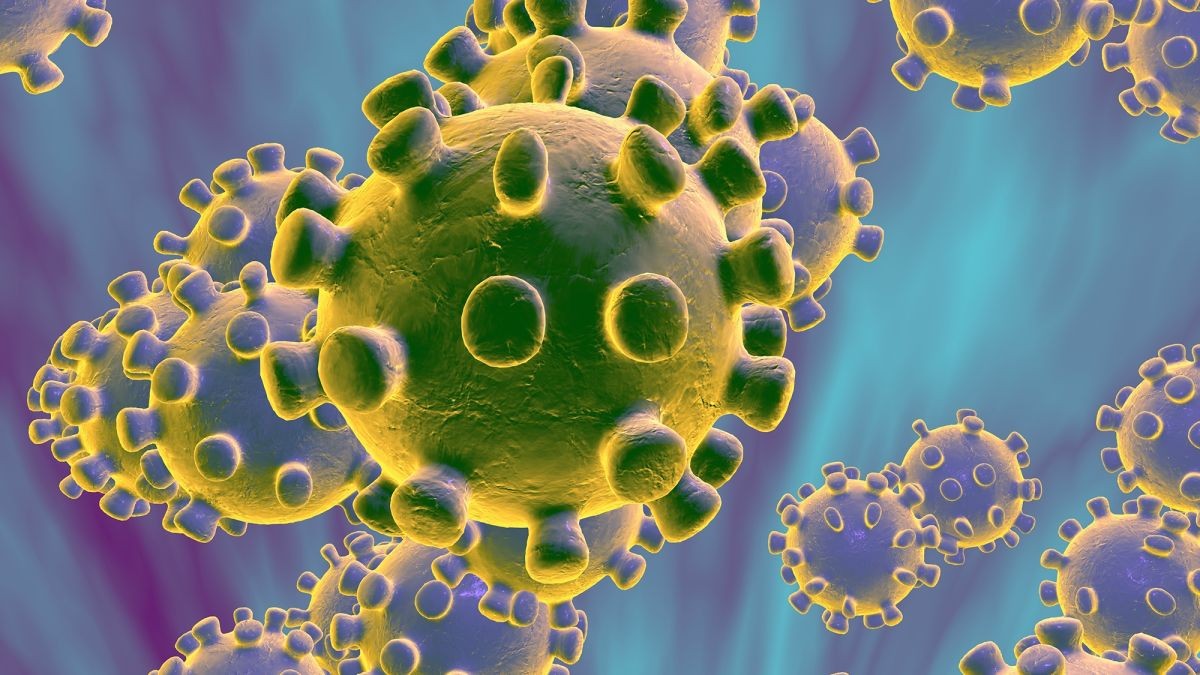Prevention has its place in many areas of our lives. The employer is obliged to apply general prevention principles to ensure safety and health at work place, including information, education, work and resources organization.
Washing hands is alfa omega
The way of the virus or bacteria to the body is simple. Just catch for example infected furniture, handles or used dishes. If the virus-bearing fingers subsequently touch the mucous membranes of the mouth, nose or eyes, the flu can penetrate into the body.
Thorough hand washing is the best prevention against the possibility of infection by hand contact with other surfaces. Of course there should be a mechanical washing of hands in the workplace, before every meal, after the toilet and after returning home. It is also recommended to wash your hands after every cough and sneeze. If water and soap are not available, it is important to use alcohol-based disinfectant gels or wet disinfectant wipes. They are highly effective and disinfect hands.

Instead of a hand dryer, it is recommended to use disposable paper towels as this is quick and the wipes used can be easily discarded. It is also important to maintain regular office ventilation, which will help reduce the potential presence of bacilli (or virus) in the workplace.
Prevention of acute workplace diseases
Exclusion of the employee from the work team for home treatment is recommended in the presence of cough, throat pain, rhinitis, headache, muscles and joints, chills and temperatures above 38 ° C. If the worker has only cold (sneezing, coughing) and is does not have temperture, it is advisable to stay in the room alone and avoid contact with other workers.

Health and safety in working environment concerns apply to employees and employers in all sectors. It is the employers’ duty to ensure health and safety at work.
Coronavirus or standard seasonal influenza?
The situation around the coronavirus has changed almost from hour to hour in recent days. Compared to the past, a higher level of hygiene is now an advantage. On the contrary, the disadvantage is that the world is much more interconnected than it used to be. Traveling becomes a risk factor (and) for coronavirus. Infection can be brought from the outbreak and spread in the event of ignorance or carelessness.

Infection in viruses spreads via a droplet route and transmission is likely only after prolonged contact with the infected person. The virus perishes rapidly outside the host organism, so it is not transmitted by mail. The incubation period is up to 14 days, but is most often around 5 days. The best precautionary measure is to maintain hygiene and frequent hand washing, reduce contact with symptoms, and restrict movement in places with large numbers of people.
Influenza symptoms can be confused with coronavirus, so there is no need to be stressed at all times. However, your body and health should be treated responsibly. A virus is a reason for caution, but not panic. So beyond the outbreaks of contagion, there is no reason why we should not live a normal life.







